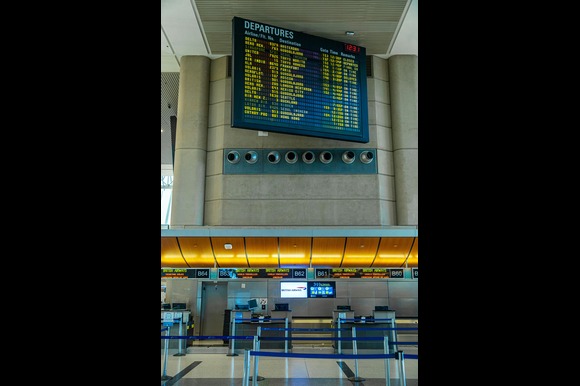Pakistan has closed all of its land border crossings with Iran indefinitely, as the intensifying conflict between Israel and Iran continues to disrupt regional travel and aviation. The closure comes amid growing concerns over safety, with missiles reportedly traversing the airspace of neighboring countries in both directions.
Atta ul Munim, an official stationed at one of the key crossings in Chaghi district, confirmed on Monday that movement across the border into Iran “has been suspended until further notice.” Qadir Bakhsh Pirkani, a senior official from Balochistan province, added that all facilities along the more than 900km (560-mile) shared border have been shut down.
Iranian airspace has also been closed as it responds to Israel’s ongoing strikes. The Civil Aviation Authority announced that the airspace would remain shut “until further notice” in an effort to ensure the safety of civilian passengers. In parallel, Israel’s main international gateway, Ben Gurion Airport, has also suspended operations “until further notice.”
El Al, Israel’s national carrier, has halted all flights until at least Thursday, with extended cancellations affecting multiple European destinations up to June 23. Meanwhile, despite the heightened security situation, three land border crossings between Israel and Jordan — the Jordan River, the King Hussein (Allenby) Bridge, and the Yitzhak Rabin crossing — remain operational.
Still, Israel’s National Security Council issued warnings against travel through Jordan and Egypt, citing elevated security threats. The Israel Airports Authority added that there is currently “no recommendation” for Israelis to travel to Greece or Cyprus, cautioning that passengers may face significant delays — potentially waiting days — to return.
In a related development, Jordan has once again closed its airspace, marking the second time since Israel initiated its surprise offensive against Iran on Friday. Authorities in Amman confirmed that the Jordanian military intercepted several ballistic missiles that had entered the country’s airspace.
Amid the escalating crisis, several nations are taking steps to evacuate their nationals from affected regions. Poland’s Deputy Foreign Minister stated that plans are underway to reroute around 200 Polish citizens currently in Israel via Jordan’s capital, Amman.
India has also stepped up efforts to safeguard its citizens. The Indian Ministry of External Affairs reported that its embassy in Tehran is closely monitoring the security situation and maintaining contact with Indian students in Iran. In some cases, students are being relocated to safer areas within the country with the embassy’s assistance.
The ongoing conflict has prompted numerous airlines to alter their flight schedules. Russia’s Aeroflot has suspended flights between Moscow and Tehran and adjusted routes across the Middle East. Qatar Airways has temporarily cancelled services to and from Iran, Iraq, and Syria due to the security situation.
Greece’s Aegean Airlines has cancelled all flights to and from Tel Aviv until July 12, as well as services to and from Beirut, Amman, and Erbil through June 28. The widespread travel disruptions underscore the mounting impact of the conflict on regional mobility and international air travel.






